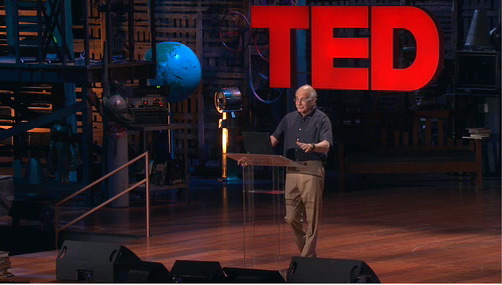“Why do we put so much weight on memory relative to the weight that we put on experiences?”
Think of the implications of that question, and how it affects how we think about our lives. I’m tickled and intrigued by some of the things psychologist and Nobel laureate Daniel Kahneman has to say in this TED talk, “The riddle of experience vs. memory,” and how they apply to our experiences (and memories) not only of our lives, but of works of art. He tells a story of someone who said he had listened to a wonderful symphony, but how a “dreadful screeching sound” at the end “ruined the whole experience.”
But it hadn’t. What it had ruined were the memories of the experience. He had had the experience. He had had 20 minutes of glorious music. They counted for nothing because he was left with a memory; the memory was ruined, and the memory was all that he had gotten to keep.
The psychological present — the part of our consciousness we might call the “experiencing self” — lasts about three seconds. But though most of our lives are lived in this continuous flow of moments, our remembering selves let go of virtually all of them, because they don’t fit into the way we organize our memories, the stories we tell ourselves.
So, say you’re living in Ohio and you decide you’d be happier in California because you think the climate is more hospitable.
Well, their experiencing self is not going to get happier. We know that. But one thing will happen. They will think they are happier, because, when they think about it, they’ll be reminded of how horrible the weather was in Ohio. And they will feel they made the right decision.
In other words, the perspective of experience — moment by moment — has almost nothing to do with the perspective of memory, which tends to re-shape the entire experience according to how it “ended.” This is, I think, a great subject for movies to address. But perhaps it’s also the reason test audiences tend to rate movies based on how they feel about their endings, rather than the overall entertainment experience of the movie itself.
For example, I remember a screening on the Paramount lot of “Fatal Attraction.” I thought it was terrific, exciting, challenging in the way it kept overturning your judgements throughout the film. On the one hand, Glenn Close’s character seemed absolutely justified in her anger. She made some good, emotionally and morally persuasive arguments. On the other hand, she was a dangerous stalker. The movie did indeed go entirely off the rails for me by the time she was boiling bunnies and emulating Michael Myers in “Halloween.” That, of course, is the part of the movie that was re-shot (after the original, ambivalent ending tested poorly) and that made the picture a smash hit.











